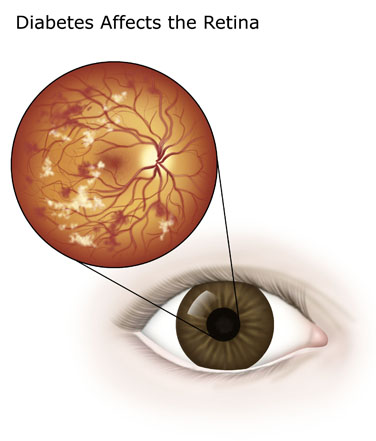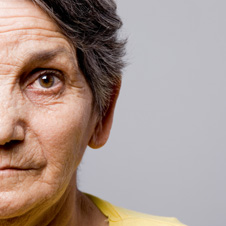People with diabetes are at risk of eye problems, ranging from minor changes with no effect on vision to significant visual loss. With regular screening and eye exams by an eye doctor (ophthalmologist), and with stable and near normal blood glucose control, most of the serious complications can be avoided or successfully treated.
Vision complications
Putting off an eye exam is very risky. Usually there are few or no symptoms at the time the damage is occurring. Exams will reveal the problem and allow your eye doctor to treat it. Treatment can slow down the progression and maintain vision even in those who have developed significant eye complications.

Eye complications include:
- Retinopathy
- Cataracts
- Macular edema
- Glaucoma
Healthy eyes require that you:
- Control your blood sugar
- Control your blood pressure
- Control your cholesterol
- Don’t smoke and avoid second hand smoke
- Use Ultra-violet protected eye glasses
- See your ophthalmologist regularly and get retinal exams and eye pressure checked
Symptoms of eye emergencies:
- Loss of vision,
- Holes in vision,
- Showers of sparking white lights,
- Black curtains over vision,
- Spots of fuzzy print, hazy vision,
If you have symptoms of any of the eye emergencies, seek medical care or contact your eye doctor immediately.
Self-assessment Quiz
Self assessment quizzes are available for topics covered in this website. To find out how much you have learned about Diabetes Complications, take our self assessment quiz when you have completed this section. The quiz is multiple choice. Please choose the single best answer to each question. At the end of the quiz, your score will display. If your score is over 70% correct, you are doing very well. If your score is less than 70%, you can return to this section and review the information.
